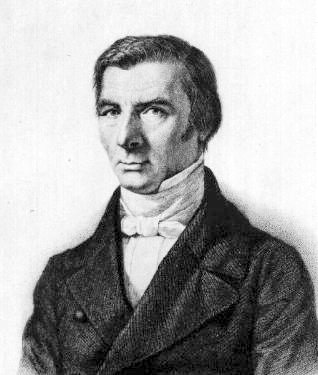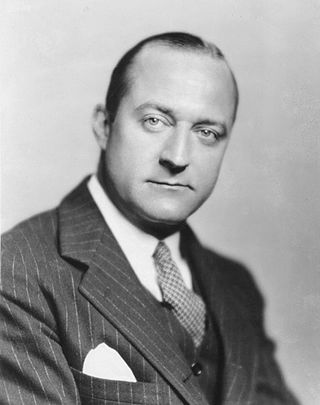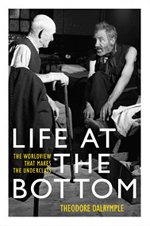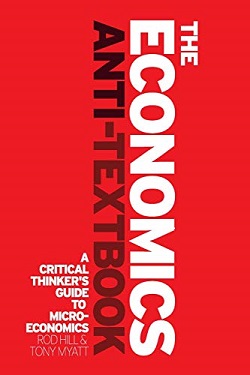
Claude-Frédéric Bastiat was a French economist, writer and a prominent member of the French liberal school.

The parable of the broken window was introduced by French economist Frédéric Bastiat in his 1850 essay "That Which Is Seen, and That Which Is Not Seen" to illustrate why destruction, and the money spent to recover from destruction, is not actually a net benefit to society.

Thomas Sowell is an American economist, economic historian, social philosopher and political commentator. He is a senior fellow at the Hoover Institution. With widely published commentary and books—and as a guest on TV and radio—he is a well-known voice in the American conservative movement as a prominent black conservative. He was a recipient of the National Humanities Medal from President George W. Bush in 2002.

Henry Stuart Hazlitt was an American journalist, economist, and philosopher known for his advocacy of free markets and classical liberal principles. Over a career spanning more than seven decades, Hazlitt wrote extensively on business, economics, and public policy for prominent publications, including The Wall Street Journal, The Nation, The American Mercury, Newsweek, and The New York Times. He is best known for his 1946 book, Economics in One Lesson, a work grounded in the Austrian school of economics and the importance of individual liberty in economic decision-making.
The Chicago school of economics is a neoclassical school of economic thought associated with the work of the faculty at the University of Chicago, some of whom have constructed and popularized its principles. Milton Friedman and George Stigler are considered the leading scholars of the Chicago school.
Econophysics is a non-orthodox interdisciplinary research field, applying theories and methods originally developed by physicists in order to solve problems in economics, usually those including uncertainty or stochastic processes and nonlinear dynamics. Some of its application to the study of financial markets has also been termed statistical finance referring to its roots in statistical physics. Econophysics is closely related to social physics.

George Joseph Stigler was an American economist. He was the 1982 laureate in Nobel Memorial Prize in Economic Sciences and is considered a key leader of the Chicago school of economics.
Philip Mirowski is a historian and philosopher of economic thought at the University of Notre Dame. He received a PhD in Economics from the University of Michigan in 1979.

Ludwig Heinrich Edler von Mises was an Austrian-American economist, logician, sociologist and philosopher of economics of the Austrian school. Mises wrote and lectured extensively on the societal contributions of classical liberalism and the power of consumers. He is best known for his work in praxeology, particularly for studies comparing communism and capitalism, as well as for being a defender of classical liberalism in the face of rising illiberalism and authoritarianism throughout much of Europe during the 20th century.

In the history of economic thought, a school of economic thought is a group of economic thinkers who share or shared a mutual perspective on the way economies function. While economists do not always fit within particular schools, particularly in the modern era, classifying economists into schools of thought is common. Economic thought may be roughly divided into three phases: premodern, early modern and modern. Systematic economic theory has been developed primarily since the beginning of what is termed the modern era.

Walter Edward Williams was an American economist, commentator, and academic. Williams was the John M. Olin Distinguished Professor of Economics at George Mason University, a syndicated columnist, and author. Williams held classical liberal and libertarian views, and wrote frequently for Townhall, WND, and Jewish World Review. Williams was also a popular guest host of the Rush Limbaugh radio show when Limbaugh was unavailable.

Keynes: The Return of the Master is a 2009 book by economic historian Robert Skidelsky. The work discusses the economic theories and philosophy of John Maynard Keynes, and argues about their relevance to the world following the Financial crisis of 2007–2010. In contrast to the 30 years he needed to write his prize-winning biography on Keynes, the author was able to write this 240-page book in only three months.

Intellectuals and Society is a non-fiction book by Thomas Sowell. The book was initially published on January 5, 2010, by Basic Books.
The social dividend is the return on the natural resources and capital assets owned by society in a socialist economy. The concept notably appears as a key characteristic of market socialism, where it takes the form of a dividend payment to each citizen derived from the property income generated by publicly owned enterprises, representing the individual's share of the capital and natural resources owned by society.

Life at the Bottom: The Worldview That Makes the Underclass is a collection of essays written by British writer, doctor and psychiatrist Theodore Dalrymple and published in book form by Ivan R. Dee in 2001. In 1994, the Manhattan Institute started publishing the contents of these essays in the City Journal magazine. They are about personal responsibility, the mentality of society as a whole and the troubles of the underclass. Dalrymple had problems in finding a British publisher to help him turn his individual essays into a collection, so he eventually turned to American companies for publication.

The Economics Anti-Textbook is both an introduction to, and critique of the typical approaches to economics teaching, written by Roderick Hill and Tony Myatt in 2010. The main thrust of the authors' argument is that basic economics courses, being centered on models of perfect competition, are biased towards the support of free market or laissez-faire ideologies, and neglect to mention conflicting evidence or give sufficient coverage of alternative descriptive models. This book has been updated and superseded by The Microeconomics Anti-Textbook and The Macroeconomics Anti-Textbook, by the same authors.

The Housing Boom and Bust is a non-fiction book written by Thomas Sowell about the United States housing bubble and following subprime mortgage crisis. The book was initially published on April 24, 2009, by Basic Books and reissued on February 23, 2010.
The Review of Black Political Economy is a quarterly peer-reviewed academic journal established in 1970 publishing research on the economic status of African-Americans, the African diaspora, and other non-white marginalized populations. It is affiliated with the National Economic Association and is published by SAGE Publishing. Individual memberships can be acquired through membership in the National Economic Association or through direct subscription.. The journal focuses on research that can inform policies to reduce racial, gender, and ethnic economic inequality. The journal is also a member of the Committee on Public Ethics (COPE).
Harmonies of Political Economy is an 1850 book by the French classical liberal economist Frédéric Bastiat, in which the author applauds the power and ingenuity of the intricate social mechanism, "every atom of which ... is an animated thinking being, endued with marvelous energy, and with that principle of all morality, all dignity, all progress, the exclusive attribute of man - LIBERTY." While it is regarded as Bastiat's magnum opus, it was incomplete when it was published.

Wealth, Poverty and Politics: An International Perspective is a book by American economist and social theorist Thomas Sowell. It was originally published by Basic Books in 2015, with an updated version published in 2016. In the work, Sowell argues against the notion that economic equality is solely natural, and examines geographic, cultural, social, and political factors that have contributed to the wealth of groups and nations.














